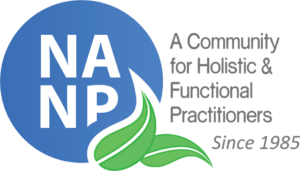Kansas is an Exclusive Scope of Practice State and requires a license to provide therapeutic nutrition care. Only a licensed dietitian can obtain a license to provide nutrition assessment, goal setting, nutrition counseling, or advice or use the titles “dietitian,” “licensed dietitian” or the abbreviation “L.D.” alone or in combination with other titles or use the letters L.D. or any other words or letters to indicate that the person using the same is a licensed dietitian.
(b) Violation of this section is a class C misdemeanor.
(c) In lieu of or in addition to prosecution under subsection (b), the secretary may bring an action to enjoin an alleged violation of this section.
Exemptions:
65-5912. Construction of act; exemptions. (a) Nothing in this act shall be construed to require any insurer or other entity regulated under chapter 40 of the Kansas Statutes Annotated or any other law of this State to provide coverage for or indemnify for the services provided by a person licensed under this act.
(b) So long as the following persons do not hold themselves out to the public to be dietitians or licensed dietitians or use these titles in combination with other titles or use the abbreviation L.D., or any combination thereof, nothing in this act shall be construed to apply:
(1) To any person licensed to practice the healing arts, a licensed dentist, a licensed dental hygienist, a licensed professional nurse, a licensed practical nurse, a licensed psychologist, a licensed masters level psychologist, a licensed pharmacist or an employee thereof, a physician assistant, a licensed professional counselor;
(2) to any unlicensed employee of a licensed adult care home or a licensed medical care facility as long as such person is working under the general direction of a licensee in the healing arts, nursing or a dietetic services supervisor as defined in regulations adopted by the secretary of health and environment or a consultant licensed under this act;
(3) to any dietetic technician or dietetic assistant;
(4) to any student enrolled in an approved academic program in dietetics, home economics, nutrition, education or other like curriculum, while engaged in such academic program;
(5) to prevent any person, including persons employed in health food stores, from furnishing nutrition information as to the use of food, food materials or dietary supplements, nor to prevent in any way the free dissemination of information or of literature as long as no individual engaged in such practices holds oneself out as being licensed under this act;
(6) to prohibit any individual from marketing or distributing food products, including dietary supplements, or to prevent any such person from providing information to customers regarding the use of such products;
(7) to prevent any employee of the State or a political subdivision who is employed in nutrition-related programs from engaging in activities included within the definition of dietetics practice as a part of such person’s employment;
(8) to any person who performs the activities and services of a licensed dietitian or nutrition educator as an employee of the State or a political subdivision, an elementary or secondary school, an educational institution, a licensed institution, or a not-for-profit organization;
(9) to any person serving in the armed forces, the public health service, the veterans administration or as an employee of the federal government;
(10) to any person who has a degree in home economics insofar as the activities of such person are within the scope of such person’s education and training;
(11) to any person who counsels or provides weight-control services as a part of a franchised or recognized weight-control program or a weight-control program that operates under the general direction of a person licensed to practice the healing arts, nursing or a person licensed under this act;
(12) to any person who is acting as a representative of a trade association and who engages in one or more activities included within the practice of dietetics as a representative of such association;
(13) to a licensed physical therapist who makes a dietetic or nutritional assessment or gives dietetic or nutritional advice in the normal practice of such person’s profession or as otherwise authorized by law;
(14) to a dietitian licensed, registered or otherwise authorized to practice dietetics in another state who is providing consultation in this State;
(15) to any person conducting a teaching clinical demonstration which is carried out in an educational institution or an affiliated clinical facility or health care agency;
(16) to any person conducting classes or disseminating information relating to nonmedical nutrition; or
(17) to any person permitted to practice under K.S.A. 65-2872a, and amendments thereto.
(c) Nothing in this act shall be construed to interfere with the religious practices or observances of a bona fide religious organization, nor to prevent any person from caring for the sick in accordance with tenets and practices of any church or religious denomination which teaches reliance upon spiritual means through prayer for healing.
Source: Kansas Revised Statutes:
Kansas Statutes, Chapter 65 – Public Health (Article 59 – Dietitians)
65-5912 Construction of Act, Exemptions
Kansas 310.990 Penalties.
(1) Any person who violates the provisions of this chapter or who seeks to be certified or is certified under false pretenses or as a result of fraudulent information, shall be guilty of a Class A misdemeanor.
(2) In addition, any person who violates the provisions of this chapter, shall be guilty of violating KRS 367.170 of the Consumer Protection Act and shall be subject to injunction and any other penalties provided for in K.R.S. Chapter 367.
